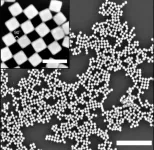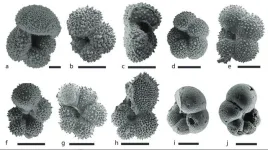The Davos Alzheimer’s Collaborative (DAC), the global organization seeking to cure Alzheimer’s disease and dementia, today announced a new initiative in health systems in five countries to deploy blood biomarkers (BBMs) and confirmatory diagnostic testing to increase timely and accurate diagnosis of Alzheimer’s disease and related dementias (ADRD). Led by the DAC Healthcare System Preparedness (DAC-SP) team, the Accurate Diagnosis project is the first-ever global implementation research program to study the use of blood biomarkers as part of the ADRD diagnostic process.
The Accurate Diagnosis project is DAC-SP’s most recent effort to overcome the challenges of long wait times for specialists, overwhelmed primary care providers, and no standard clinical protocols for identifying ADRDs at the earliest stages. The recent availability of diagnostics and treatments designed to target early stages of Alzheimer’s disease brings hope yet makes it more urgent to identify patients who can benefit most from care.
Healthcare systems across Germany, Japan, the Netherlands, the U.K., and the U.S. will deploy, evaluate, and disseminate real-world learnings of BBMs and confirmatory Alzheimer’s pathology testing. The goal of this project is to enable healthcare providers to use these tests, traditionally employed in research settings, in everyday clinical practice - thereby accelerating the translation of validated tools from research to timely patient care.
“The DAC Healthcare System Preparedness team is eager to build and share learnings during the next phase of implementing these critical triaging tools,” said Tim MacLeod, DAC Healthcare System Preparedness Director. “This project expands the learnings from our previous program on early detection of cognitive impairment to ensure an increasing number of Alzheimer’s disease patients receive the right care, at the right time.”
The program site leaders will come together as a Community of Practice to share their experiences and collaborate on solutions to common challenges throughout the 18-month project. To benefit other healthcare systems interested in adopting similar programs, the learnings and practical resources from the Accurate Diagnosis project will be incorporated into the DAC-SP Early Detection Blueprint.
Commenting on the value DAC places on linking and scaling effective early-stage diagnostic programs, Davos Alzheimer’s Collaborative Founding Chairman George Vradenburg said, “We are committed to advancing timely diagnosis of Alzheimer’s disease in all resource settings, in every country, thus leveraging learnings for the benefit of all. The Accurate Diagnosis project will help catalyze healthcare system change and will make patient-centered care and support more widely accessible.”
The sites were selected based on their scientific and clinical capabilities as well as their ability to reach patients across ages, racial and ethnic backgrounds, education levels, socioeconomic status, and geographic settings. Initial sites include the University of Kansas Alzheimer’s Disease Research Center, Icahn School of Medicine at Mount Sinai, Wake Forest University School of Medicine, Alzheimer Center Amsterdam at Amsterdam UMC, Imperial College London and Imperial College Healthcare NHS Trust, Ludwig-Maximilians University (LMU) Hospital Munich – Alzheimer’s Therapy and Research Center, Tokyo Metropolitan Institute for Geriatrics and Gerontology.
Four partners are providing in-kind contributions of BBM and/or CSF test kits to support the Accurate Diagnosis project. Learnings will help inform the Alzheimer’s field on how pathology assessments are optimally used in clinical practice to better support their sustainability in the future. The partners include C2N and Quanterix for blood biomarkers, and Fujirebio and Roche for both blood biomarkers and CSF testing.
To learn more about the public, private, and philanthropic support that make this project and other DAC programming possible, please click here.
About the DAC Healthcare System Preparedness Program
The Davos Alzheimer’s Collaborative Healthcare System Preparedness (DAC-SP) Program addresses the readiness of our healthcare systems worldwide for a global aging population, with an initial focus on improving rates of early detection and the timely and accurate diagnosis of Alzheimer’s disease. DAC-SP applies implementation science methods to turn research breakthroughs into lasting improvements in clinical practice. To accelerate and scale the delivery of cutting-edge treatments and innovations globally, DAC-SP shares learnings and best practices through Learning Laboratorymeetings and its Early Detection Blueprint. In collaboration with our partners around the world, DAC-SP serves as a catalyst for transformative improvement within healthcare systems.
About the Davos Alzheimer’s Collaborative
The Davos Alzheimer's Collaborative (DAC) is a pioneering worldwide initiative to cure Alzheimer’s disease and dementia, seeking to mirror the success of global efforts against infectious diseases such as HIV/AIDS, Covid, and Malaria. DAC is extending global research beyond its current focus on traditional Western European ethnic populations into the highly diversified populations of the Global South, where the vast majority of those with Alzheimer’s live. By introducing lower-cost screening and diagnostic tools as well as new treatment and prevention modalities in primary care and community health settings, DAC is driving implementation of health system solutions that are appropriate for worldwide application. DAC also promotes the vital importance of brain health throughout the lifespan by addressing cardiometabolic and lifestyle factors, especially in early and mid-life. Absent effective action at scale around the world, by 2050, more than 150 million families and half a billion people will be personally impacted by dementia, creating a social, financial, economic, and global security disaster of historic proportions. DAC was launched in Davos in 2021 by the World Economic Forum and the Global CEO Initiative on Alzheimer's Disease. For more information, please visit: davosalzheimerscollaborative.org
Note to Editors: To learn more about the Davos Alzheimer’s Collaborative Accurate Diagnosis project, please register for our next meeting of the DAC-Healthcare System Preparedness Learning Laboratory taking place on June 18th at 8 am ET.
END



